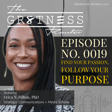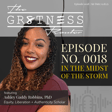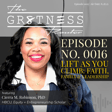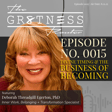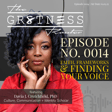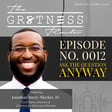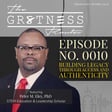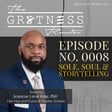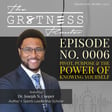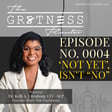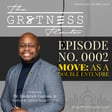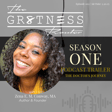
Ep. 0017 | The Greatest Seven-Letter Word
In this illuminating chapter of The GR8TNESS Router, host Zena C. sits down with scholar, author, and trailblazing university president Dr. Brian L. Johnson. From his roots in Durham, North Carolina, to becoming the first minority president in Warner Pacific University’s history, Dr. Johnson shares the lessons, pivots, and defining moments that shaped his purpose-driven path.
With honesty and depth, he opens up about:
- The faith and encounters that clarified his calling
- The pivotal rejection that redirected him from law school to academia
- The resilience built by remembering where he came from
- How mentorship, integrity, and preparation remain cornerstones of leadership
Dr. Johnson reminds us that purpose isn’t static — it evolves, it pivots, and it proves itself through resilience. This is a conversation for anyone navigating their own calling and searching for the courage to keep pressing forward.
Because the greatest story you’ll ever live is the one where you remember the good, so it can prepare you for the greater.
– – –
Connect with Dr. Brian Johnson on LinkedIn, Twitter or visit intersectionoffaithandlearning.com
